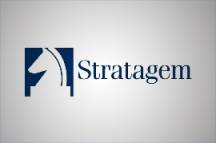 With her endorsement last night by the Central Executive Committee of the Democratic Unionist Party, Arlene Foster looks set to make history twice in the course of only a few weeks.
With her endorsement last night by the Central Executive Committee of the Democratic Unionist Party, Arlene Foster looks set to make history twice in the course of only a few weeks.
The Fermanagh and South Tyrone MLA has become the first woman to lead the DUP, a development significant in itself, of course, but also for the reason that it will soon see her ascend to a First Minister post for which she has long been tipped.
The imminent resignation from the Executive of current First Minister Peter Robinson, and an uncontested play for the leadership of a party that she only joined eleven years ago, places Foster at the forefront of Northern Ireland’s affairs.
Never before has a woman held the highest position in the region’s devolved institutions on a permanent basis; Foster has, however, stepped in to take Robinson’s place on two occasions, a demonstration of her ability to assume his mantle.
A former solicitor, she was first elected to the Assembly as an Ulster Unionist in 2003. Her high-profile defection to the rival – and, at the time, smaller – DUP was significant. Her journey reflects the experience of many former Ulster Unionsts who now occupy senior positions within the DUP.
 It showed that the mood of unionism was leaning towards the politics of Paisley and Robinson, where tougher stances on power sharing would later be tempered by the pragmatism of governance.
It showed that the mood of unionism was leaning towards the politics of Paisley and Robinson, where tougher stances on power sharing would later be tempered by the pragmatism of governance.
Following the commencement of the next Assembly mandate in 2007, Foster was appointed Environment Minister, her first taste of Executive power. A reshuffle in May 2008 placed her as Minister of Enterprise, Trade and Investment, a role she would fulfill, with relative success, for the next seven years.
A successful re-election to the Assembly in 2011 assured that Foster’s political ambitions remained undimmed and she was seen by many commentators as being in contention for the key Finance and Personnel portfolio, one she eventually received last May.
As she had in early 2010, Foster took the reins once again last September, acting up as First Minister during the period of crisis stemming from Executive disputes over welfare reform and paramilitarism.
Robinson’s refusal to carry on with “business as usual” saw the DUP’s ministers engage in a series of rolling resignations. Only the Finance Minister remained in place to cover her own department and to act as a “gatekeeper” guarding her party’s hold on the First Minister’s office.
Now that those leadership credentials have been officially ratified, Foster’s chance to imprint her personality upon the DUP and the prickly, angular Executive may begin in earnest.
So, what are the challenges for the DUP leader and putative First Minister of Northern Ireland?
From a party political perspective she will have to see off an assault from the right, both within and out with her party. Will the old guard accept her leadership in reality, or, like former SDLP leader Margaret Ritchie MP, will she be subject to a war of attrition from internal critics?
Externally, the electoral hopes of DUP rivals UKIP and the Traditional Unionist Voice (TUV) will be high following their respective European election campaigns; between them they secured 100,000 votes. Whether or not Foster can hold off these challenges, along with that posed by a somewhat energised Ulster Unionist Party, must represent an immediate test of her not inconsiderable mettle.
It is worth remembering that the UUP returned two MPs in the form of Danny Kinahan (Antrim South) and Tom Elliott (Fermanagh and South Tyrone, Foster’s own constituency) at the general election. The question begs: does two MPs an Assembly contest make?
From a policy perspective, difficulties around budgets, OECD recommendations, and welfare reform still haunt the Westminster discourse. With respect to the latter, the effect of mitigation measures will fascinate many, especially those across the sea in Scotland.
As a former Enterprise Minister, will Foster want to see the region grasp the opportunity offered by the corporation tax reduction scheduled for 2018? On that score, the devolution of powers require a cut in the block grant which will be difficult to balance but may well be worth the pay off in the long run, especially if Northern Ireland, along with everywhere else in the UK, stands before the door marked ‘Brexit’.
What, then, of Europe? The DUP’s leadership will have to reconcile its Eurosceptic sensibilities with a rational analysis of how great a risk the UK’s potential withdrawal is to a Northern Ireland which is so dependent on agriculture and, uniquely, shares a land border with a Eurozone country.
The apparent “crisis” in manufacturing and how this ties in with the need to balance energy costs with security of supply is another pressing matter that the new First Minister will need to tackle head-on. Her role as Enterprise Minister means she is well briefed on the issues and the recent establishment of the Energy and Manufacturing Advisory Group may go some way to placate big industry users, at least in the short term.
That said, long standing issues of poor energy infrastructure and grid connections, ongoing uncertainty around renewables subsidies, and the review of the Strategic Energy Framework, mean that difficult times lie ahead.
Health, too, remains a hot topic, with Foster and party colleague Simon Hamilton, the Health Minister, needing to watch over a service that remains stretched to a fraught degree. Long waiting lists, squeezed resources, stalled cancer services and Hamilton’s proposed reforms all continue to compete for Ministerial attention. A recent injection of cash in the wake of the ‘Fresh Start’ initiative notwithstanding, it is on this front that Foster’s DUP may feel particular pressure.














